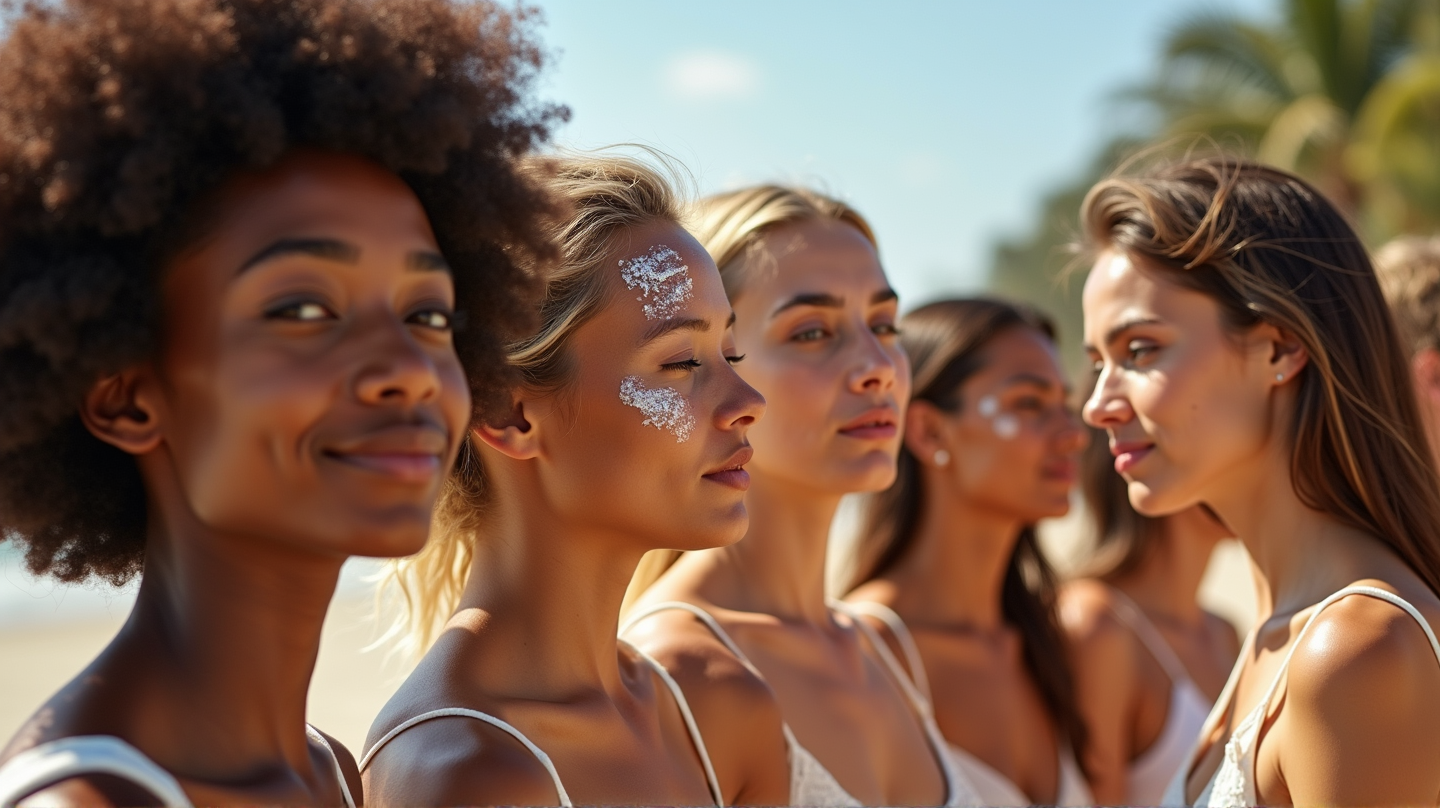The Essential Guide: Sunscreen is a Must for All Skin Tones
Discover why everyone, including those with darker skin, needs sunscreen for protection against sun damage and skin health.

When the sun shines its warm rays, most of us feel the urge to soak in the warmth. But experts are urging everyone, regardless of skin tone, not to forget the sunscreen. It turns out, even those with darker skin aren’t exempt from the sun’s harsh effects.
Melanin’s Shield: Not Enough Alone
You’ve heard it—a little melanin goes a long way. Indeed, melanin provides some natural defense against UV damage, but it doesn’t offer complete protection. Dermatologists emphasize that people of all hues need to adopt sun protection habits. According to Health News Florida, sunscreen is not just about preventing a sunburn but also about caring for your skin’s long-term health.
Understanding the Risks: Melanoma and Beyond
Statistics reveal a concerning trend: Black and Hispanic individuals are diagnosed with melanoma at lower rates compared to their white counterparts but face lower survival rates. It’s a stark reminder of the importance of vigilance in sun protection across all demographics.
Dr. Jenna Lester, an expert in skin of color, shares that sunscreen could also prevent other issues like sunburns, hyperpigmentation, and dark spots. These conditions might not always be linked to severe consequences like cancer but can significantly impact skin appearance and confidence.
SPF: A Number to Remember
So, how much is enough? Experts recommend a sunscreen with at least SPF 30. Generously apply it every two hours, especially when swimming or sweating. Many forget to use enough, which reduces protection efficiency. Make sunscreen application a habit to guard against both short and long-term skin damage.
Avoid the Ash: Sunscreens for Darker Skin
Choosing the right product matters. Mineral-based sunscreens often leave an ashy residue on dark skin due to ingredients like zinc and titanium oxide. Opt instead for chemical-based or tinted sunscreens to blend seamlessly while still providing essential defense.
Remember, clothing and accessories can enhance protection. A hat or sun-protective clothing provides a physical barrier alongside sunscreen. Indoors isn’t a safe zone either; UV rays can penetrate windows to cause damage. Consistency, not just intensity, in protection is key.
Creating Habits for Lifelong Skin Health
Dermatologists like Dr. Lester advocate for integrating sun protection into daily routines. A consistent approach, no matter the weather or location, cements sunscreen use as a pivotal part of skin health routines.
In our journey toward healthier, protected skin, sunscreen isn’t a choice—it’s a necessity. As the dialogue around skincare evolves, so too should our habits. After all, the sun will forever shine, and so must our efforts to safeguard our skin.





